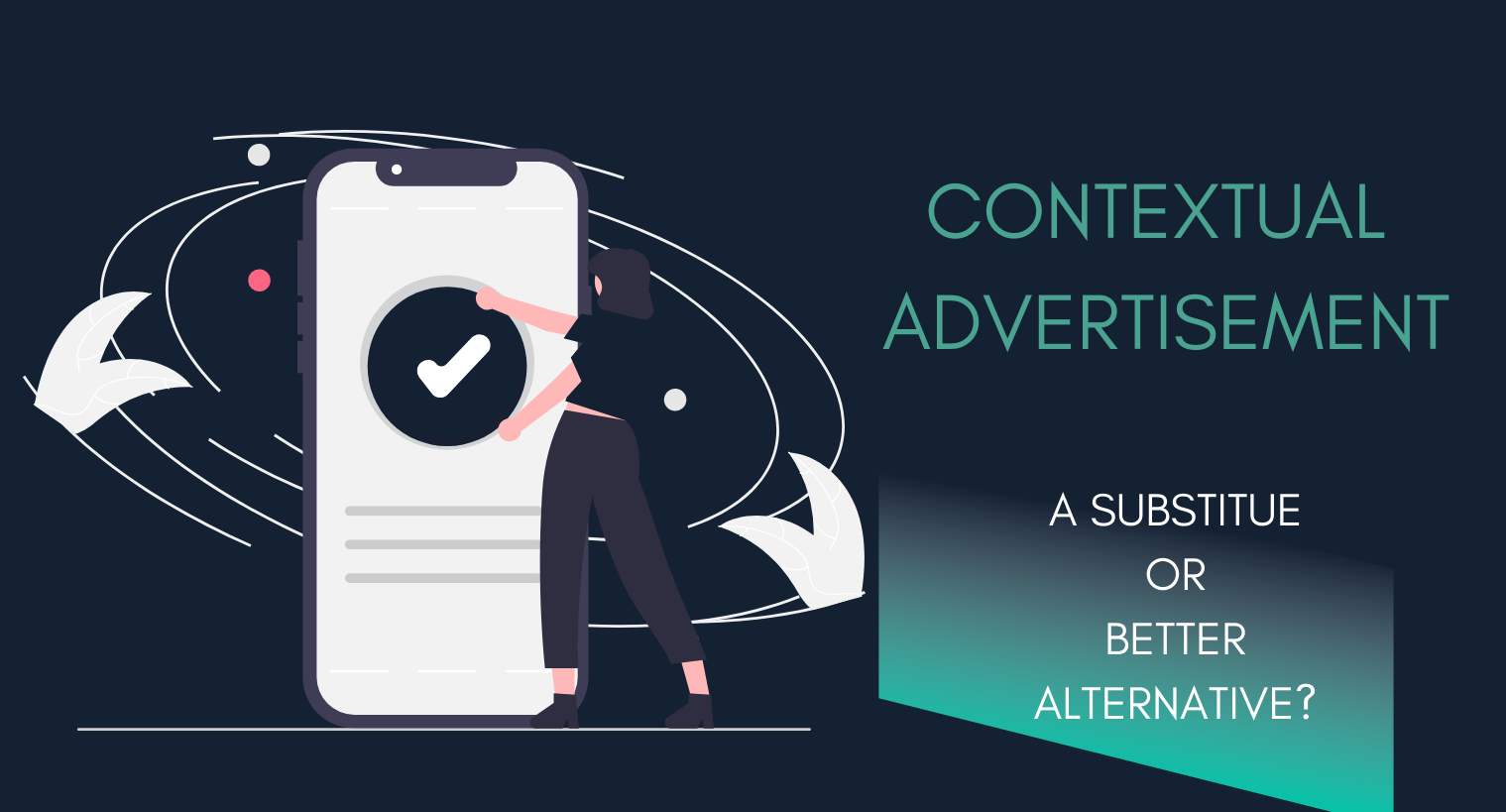Is Contextual Advertising a Substitute for Cookie-Based Targeted Advertising? | 12 Apr, 2022

With the world on the web considering privacy and security their priority, the major web browser companies like Mozilla Firefox, and Apple were left with no choice but to phase out third-party cookies. Google Chrome is also to phase out these cookies soon. This might come as a boon for users, however similar is not the case with advertisers. Targeted advertising using third-party cookies has helped brands for years in tracking users across different sites.
The major concern remains to find an alternative or substitute to third-party cookies that will not only target the correct audience but also provide a positive ROI with effective campaigns.
Is Contextual Advertising a Better Alternative to Cookie-Based Targeted Advertising?
Contextual advertising is the practice of displaying advertisements on web pages based on their content. It is the best approach for brands to target users in a safe and privacy-compliant manner.
For example, you might have seen ads for running shoes on a news article featuring a 100 km marathon or ads for headphones on a computer-selling eCommerce website.
This is accomplished by contextual targeting, which includes segmenting advertising based on criteria such as keyword or website subject.
Instead of matching campaigns to user profiles, contextual targeting aligns the campaign to the website or pages and its content. By using such strategies, the digital advertising sector may work towards building a privacy-first and brand-safe strategy to reach out to and engage audiences with the brand’s message.
Contextual ad targeting is more than just a third-party cookie substitute. Rather, it is apt to say that it is better than cookie-based targeted advertising and is the future of digital advertising.
Reasons Why Contextual Advertising is a Better Option than Cookie-Based Targeted Advertising
Cookie-less advertising is the future of digital advertising, and it is set to revolutionize the $330 billion industry soon. It is the most effective method for establishing a relationship with the audience by being in the right place at the right moment.
The following are some of the reasons why first-party data and contextually targeted advertising can help both advertisers and publishers.
- No Dependency on Third-Party Cookies
It is no longer a secret that customers are apprehensive about sharing their personal information. Fulling this need, contextual online advertising is the best option. It does not rely on cookies or personal information to provide appropriate ads. This is why brands now want to spend their budget more wisely by using contextual-based ads.
- Brand Safety and Suitability
Other issues that contextual targeting may solve are of brand safety and brand suitability. Most businesses are concerned about their advertisements appearing next to content connected to terrorism, drugs, violence, and other topics that may reflect negatively on the advertiser and the brand. To solve this, they use basic blocklists or out-of-date technology to detect and highlight keywords without considering their context.
This implies that even when businesses focus on brand safe advertising on web pages, they may still find their ads displaying on inappropriate websites, disrupting their image.
Context-relevant targeted advertising using Mirrors by Silverpush aids in resolving such challenges. Its AI-powered in-video context recognition provides brand safety restrictions without limiting your reach and addresses over-blocking issues.
Read our case study on how Castrol built brand relevance with Mirrors.
- Simple and Easier Implementation
Cookie-based targeted advertising needs massive amounts of data. It needs not just the appropriate tools and technology for collection, but also a staff that is needed to evaluate data.
Contextual advertising, on the other hand, focuses on predictions made by AI based on patterns and other data that makes it a more user-friendly tool.
- AI Advancements have Improved Context Accuracy
AI has become increasingly adept at assessing page content and displaying your ad to viewers who are more likely to be interested in viewing it as a result of technological breakthroughs.
This can enhance the number of leads and conversions you receive. AI also alleviates the stress on your team by practically reducing the human effort needed in segmenting audiences by finding trends and learning from previous jobs.
- Better Weather Targeting can Drive Sales
Another crucial, but often underestimated, aspect of contextual advertising is the weather. While the weather may appear insignificant, it may provide valuable information on how customers would act based on their location and weather.

BLOGS
Crafting a Winning Mother’s Day Advertising Strategy for 2024: Insights and Trends
As we approach Mother’s Day 2024, brands must prepare to adapt to changing consumer needs and preferences. Considering the current market dynamics and consumer behavior, it's crucial to develop a successful Mother’s Day campaign that extends beyond the day itself. Here's a detailed roadmap to navigating the Mother’s Day market, ...

BLOGS
Win Gold for Summer Olympics 2024 with AI-Powered Video Ads
The Paris Olympic Games 2024 is not merely a gathering of the world’s finest athletes, but it’s a testament to unity, diversity, and the pinnacle of human excellence. The grand spectacle sparks surges in consumer engagement and purchase intent worldwide. Whether you operate shoe boutiques in Ohio, bicycle repair shops ...

BLOGS
Interactive Video Ads: Turn Passive Viewers to Active Participants
Interactive video ads signify a revolutionary change in digital advertising, turning passive spectators into dynamic participants. Through the smooth integration of interactive elements such as touchpoints, quizzes, and clickable features, these ads present an unparalleled avenue for brands to connect with their audience. Viewers are no longer just observers but ...











